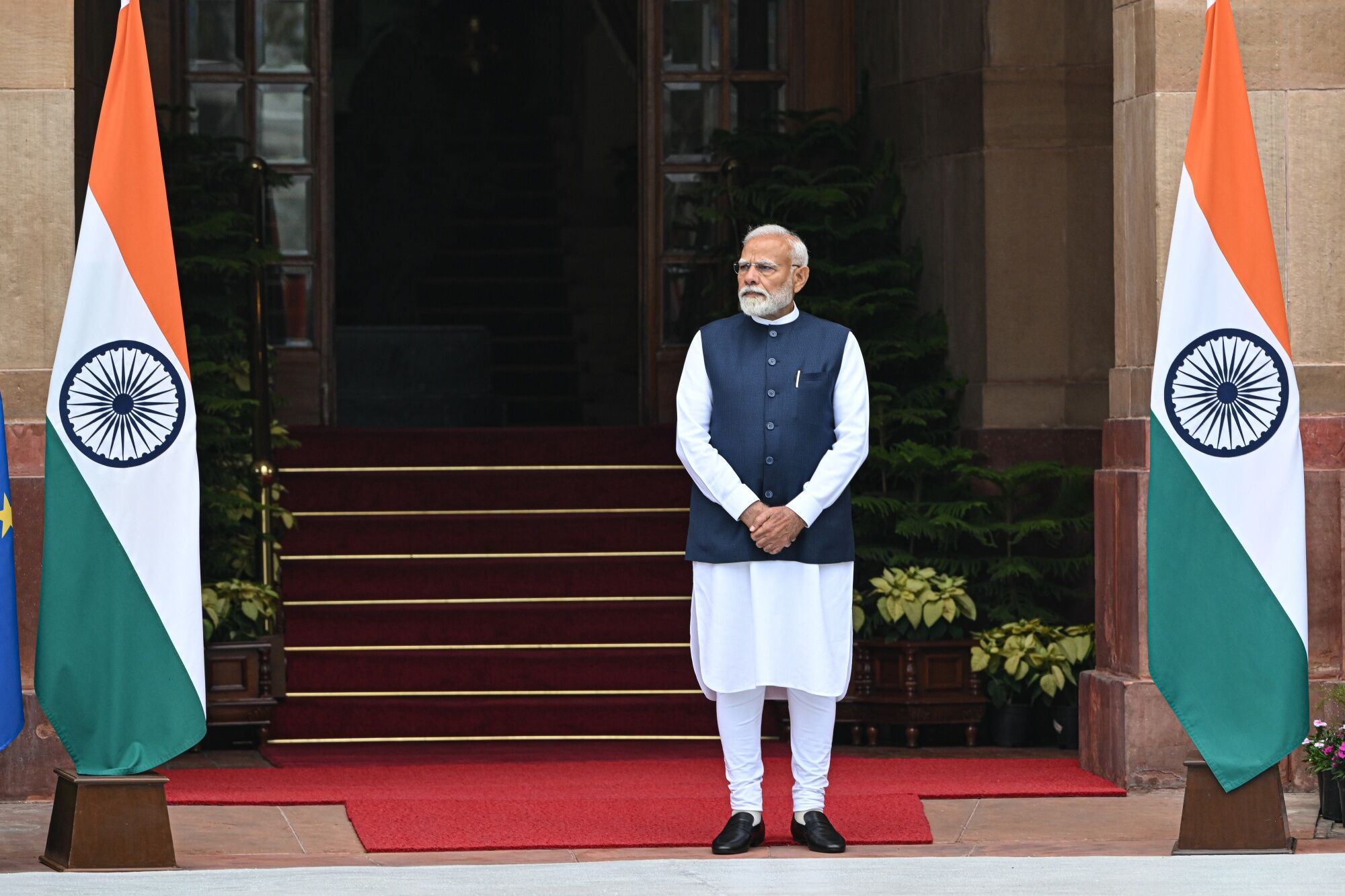India Navigates Trump's BRICS Tensions in Pursuit of Trade Deal

India's Strategic Position in the BRICS and US Relationship
India is carefully navigating its position within the BRICS group of developing nations as it faces pressure from President Donald Trump, who has criticized the bloc for challenging the dominance of the US dollar. According to sources familiar with the matter, India has emphasized that it does not intend to undermine the dollar’s global role, aiming to maintain its relationship with the United States while engaging with other BRICS members.
Trump has labeled BRICS as "anti-American" and accused the group of attempting to weaken the dollar's status as the world's primary currency. He has warned of imposing a 10% tariff on all BRICS members, including India, even as he claims a trade deal with New Delhi is close. This tension was further highlighted when Trump announced new tariffs, including a 50% levy on Brazil, one of the highest so far, just after a BRICS summit in Rio de Janeiro where leaders issued a joint statement criticizing trade-distorting tariffs.
While Brazil and South Africa have openly criticized Trump for his anti-BRICS remarks, India has remained relatively quiet, indicating its cautious approach in balancing its relationships. Indian officials have stated that they are closely monitoring Trump’s latest tariff threats but do not see an immediate cause for concern. They emphasize that India does not support initiatives aimed at creating a single BRICS currency and that any participation in local currency trade arrangements is solely to reduce risks.
Mohan Kumar, a former Indian envoy and lead negotiator at the World Trade Organization, explained that India has consistently differentiated between local currency trade and de-dollarization. He noted that India does not align with the goals of some BRICS members who advocate for an alternate reserve currency.
With India set to assume the BRICS chairmanship in 2026, it will need to distinguish itself from members like China and Russia, who aim to strengthen the bloc as a counter to US influence. India hopes its strategic value to the US and its neutral stance on currency will lead Washington to treat it differently than other BRICS members.
The Ministry of Commerce and Industry did not respond to requests for comment. Senior Indian diplomat P Kumaran mentioned during a press briefing that Prime Minister Narendra Modi and Brazilian President Luiz Inacio Lula da Silva had no discussion on Trump’s tariff threats during Modi’s recent state visit to Brazil.
The Importance of the India-US Trade Deal
India has been cultivated by several US administrations as a strategic partner and key regional counterweight to China. Recently, US Vice President JD Vance highlighted the significance of the US-India partnership in shaping the 21st century. However, this relationship has faced strains following Trump's claims about brokering a ceasefire between India and Pakistan. Modi has disputed these claims, arguing that trade was not used as a bargaining tool for the truce.
The Trump administration has also shown interest in engaging with Islamabad, including its military chief, which has raised concerns in New Delhi. A successful India-US trade deal is seen as crucial for strengthening ties between the two nations. Shashi Tharoor, an opposition lawmaker, emphasized that such a deal would signify the strength of their relationship.
Indian trade negotiators have presented their best offer to the Trump administration and are now awaiting a response. The latest tariff threats from Trump may serve as a bargaining tool to secure more concessions from New Delhi. Kumar advised distinguishing between Trump’s narrative and his actions.
As the situation evolves, the balance of power within BRICS and the future of the India-US relationship remain critical areas of focus for both nations.
Post a Comment for "India Navigates Trump's BRICS Tensions in Pursuit of Trade Deal"
Post a Comment